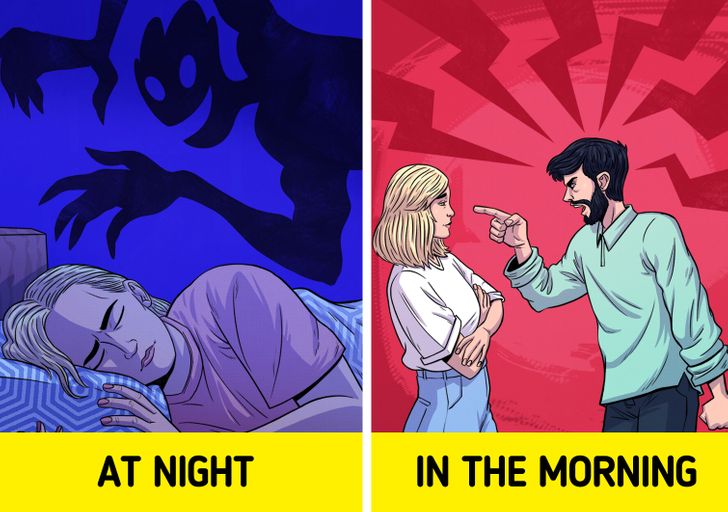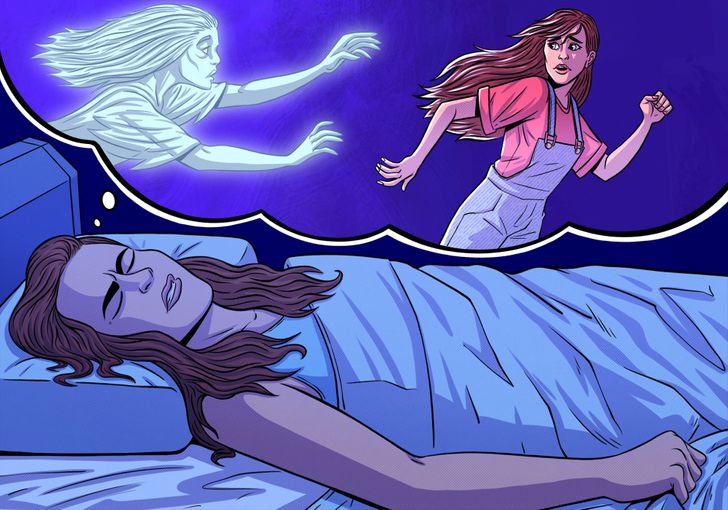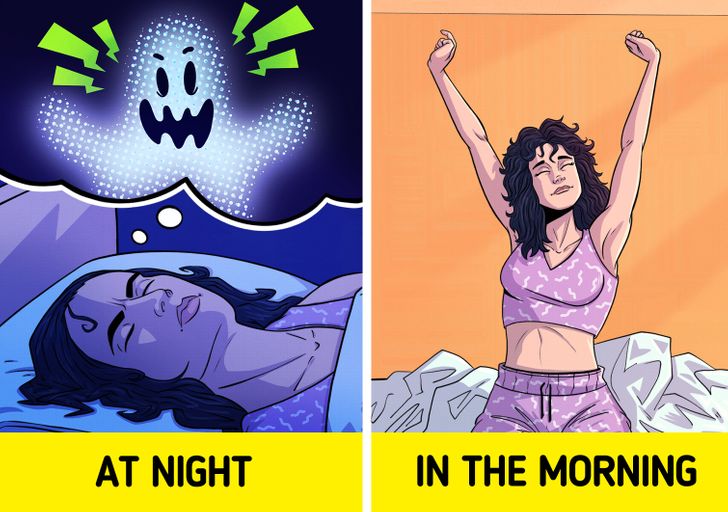We spend about a third of our lives sleeping and, whether we remember it or not, we all dream every night. But what is even more interesting is that we only partially understand the purpose of our dreams or what they exactly mean.
We have discovered 5 scientific facts that will hopefully help you improve your understanding of dreams.
Bad Dreams Protect Us In Real Life

Most of us have had nightmares at some point in our lives, and while they seem scary, there is actually a silver lining to having nightmares.
Researchers say that feeling fear and scared in your dreams can actually help you better deal with fear during waking hours.
Bad dreams increase our brain’s ability to respond to dangers and frightening experiences in real life. However, in dreams that are extremely terrifying and traumatic, the benefits are lost and can actually have a negative impact that continues after awakening.
Most Of Your Muscles Become Paralyzed During REM Sleep

During deep REM sleep, which is the stage of sleep in which most dreams occur, our eyes continue to move, but our muscles are in a state of paralysis.
According to a study, a set of specialized cells in our brain called motor neurons prevents our muscles from moving while we sleep, to avoid possible injury.
Dreams Improve Creativity And Problem-solving

Many people have made amazing breakthroughs in their dreams. Whether it’s a scientific idea, art, music, romance, or movie, we know for a fact that dreams can produce real gems, and there is a perfectly logical and scientifically backed reason for it.
When we dream, our brain is in a different neurophysiological state, allowing it to become more adept at solving problems and finding solutions to the things that block our waking minds.
And in that state, we experience increased brain activity, which in turn makes our brain more apt to provide creative and problem-solving solutions.
People Forget Up To 95% Of Their Dreams

We all know how difficult it can be to remember our dreams after waking up, not to mention old dreams from weeks, months, or years ago.
In reality, we forget up to 95% of our dreams, and this is because the changes in the brain that occur when we sleep do not support the information processing necessary to store and form memories.
Brain imaging of sleeping people showed that the area that plays a vital role in memory formation, located in the frontal lobe, is inactive during REM sleep. And since this is the stage where dreams occur, it is clear why we cannot remember our dreams after waking up.
Not Everyone Dreams In Color

While it may seem surprising, not everyone can see colors in their dreams. This phenomenon dates back to the 1940s, when apparently many people reported dreaming in black and white.
Today, studies suggest that this had to do with the fact that, at the time, people were exposed to black and white media because color television had not yet been invented.
To support this theory, a study was carried out in 2 groups of different ages, with different experiences of exposure in the media.
Those who were more exposed to black and white media had more gray dreams than those who had more experience with color media.
Which of these facts about dreams amused you the most? Let us know in the comment section.


